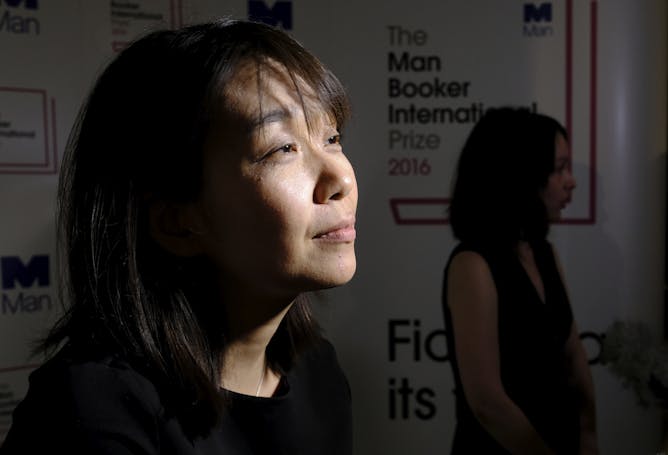|
Ruby and Chris smile happily into the camera while embracing their two daughters and two sons. The children’s faces echo their parents’ features – the image of a perfect family. But something is off. Those smiling faces are a little too identical. The children’s legs morph into each other as if they have sprung from the same ephemeral substance. This is because Ruby is Chris’s AI companion. The children aren’t real either, and this photo was created by an image generator.
Here, we investigate the highly unregulated world of human-AI relationships – uncovering why millions of people use these apps in place of friends, lovers or therapists. Author James Muldoon’s concerns extend much further than data privacy: “The problem with having your own virtual ‘yes man’, or more likely woman, is that they tend to go along with whatever crazy idea pops into your head.”
Two of the three Nobel Prizes in science this year − physics and chemistry − relate to AI. How the prizes came to be as much about bits and bytes as molecules and subatomic particles reflects the close interconnection between science and AI. Scroll down for more on this fascinating research.
And if you live in or near London, you might enjoy our event on Thursday which brings together a panel of experts to discuss the US election with one of our international affairs editors, Rachael Jolley. Register here to attend. We run these quarterly events with the academic publisher Sage and the Campaign for Social Science, and after the panel discussion there are opportunities to ask one-to-one questions of the experts and our editors over pizza and refreshments.
|

VFXPlus/Pixabay
James Muldoon, University of Essex
A growing number of people (mostly men) find AI relationship apps addictive and alluring. So what are the likely effects of this technology on us as human beings?
|
|
|
-
Veera Sundararaghavan, University of Michigan
Two researchers whose work has led to the AI revolution won the 2024 Nobel Prize in physics. A materials physicist explains statistical mechanics, the physics field behind their discoveries.
-
Marc Zimmer, Connecticut College
The prize honors innovation at Google DeepMind and in academia. Three researchers share the award for using machine learning to predict proteins’ 3D shapes and design the molecules from scratch.
|
|

Valentina Gosetti, University of New England
Han Kang is the first South Korean writer to win the Nobel Prize for Literature. Her work explores mourning, loss and connection, its subjects ranging from family brutality to national uprisings.
|
|
|
-
April Johnson, Kennesaw State University
Candidates use psychological strategies to win support and to cast their rivals in a negative light. In projection, people seek to lessen their own faults by calling out these faults in others.
-
Mireille Lalancette, Université du Québec à Trois-Rivières (UQTR)
Careers in politics are particularly difficult for women, who must be careful to avoid hurting their image. Kamala Harris is the latest to contend with this double standard.
-
Carson MacPherson-Krutsky, University of Colorado Boulder
Evacuating is expensive, and for some people the risks of leaving can seem greater than staying despite the storm.
-
Ali Mamouri, Deakin University; Shahram Akbarzadeh, Deakin University
Calls in Iran for a revision of the country’s nuclear defence doctrine are growing louder as Israel’s attacks on Iran’s main proxy group, Hezbollah, intensify.
-
Jannes Landschoff, Stellenbosch University
Three tiny new marine species have been discovered in South African waters.
-
Giulio Lucarini, National Research Council (CNR); Cyprian Broodbank, University of Cambridge; Youssef Bokbot, Institut national des Sciences de l'Archéologie et du Patrimoine in Rabat
The team’s work at Oued Beht unearthed the most extensive and earliest agricultural complex known in north Africa outside the Nile Valley.
-
Jacqueline Boyd, Nottingham Trent University
And some dogs have the same genetic mutation linked to autism in humans.
|
|